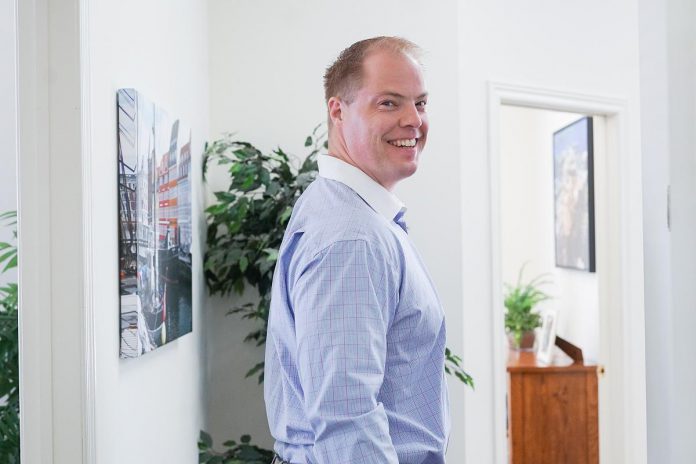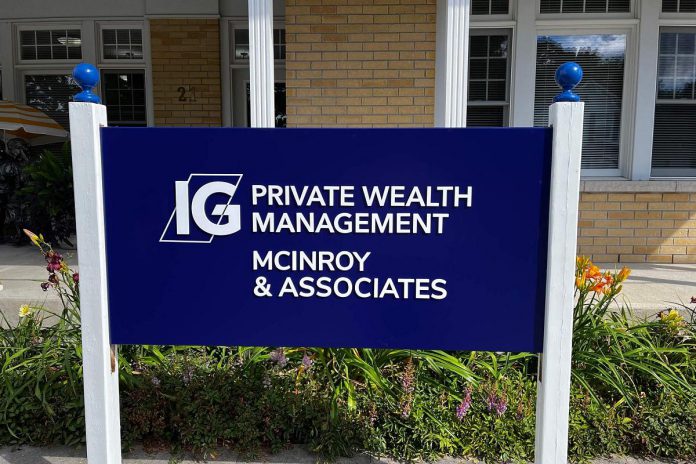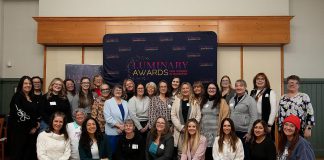
If you own a family cottage, you already know about its sentimental value as a treasure trove of beloved memories. You are also no doubt aware of its financial value, especially in today’s real estate market. But you may not be aware of the tax impact of that financial value when you pass the cottage on to the next generation.
As financial consultant Adam McInroy CFP, CLU of Bobcaygeon-based McInroy and Associates Private Wealth Management explains, when an owner disposes of a seasonal property, there will be a taxable capital gain owed on the “deemed disposition” of the property — the fair market value of the property minus the adjusted cost base. It’s not uncommon for this capital gain to be in the tens of thousands of dollars.
The good news, Adam says, is there are proven strategies around how to plan now for passing on the family cottage in a way that reduces the impact of that taxable capital gain. Noting that vacation properties — specifically cottages — have seen a decrease in market value this year, he cites a conversation he recently had with a client.
“He has a cottage not too far from here and has seen the real estate prices on his lake drop by 25 per cent,” Adam recalls. “The end of cottage season could be a great time to pass ownership to the next generation and have a lower taxable liability, rather than holding on to it for another decade or two when the value is likely to increase again.”
If a decision is made to pass ownership of the cottage to the owner’s children, “the biggest component” of succession planning may not even come down to the numbers.
“Becoming the owner of a cottage is very different than having memories of time at the cottage,” Adam points out.
“The expectation of the parents who passed it down, whether spoken or unspoken, might be they’re still going to be able to go the family cottage and enjoy it. Or, if it’s passed down to one child, the siblings might assume they have the right to use the family cottage as well.”
While one option is putting the cottage in a trust, Adam cautions this can lead to further issues if they aren’t worked out in advance.
“Simple things that you don’t think about, such as who will be responsible for to the day-to-day operation of the cottage? Who’s going to get the cottage for which weeks of the summer? How are those weeks going to be decided? Who’s going to be responsible for taxes and property maintenance?”
In his experience facilitating discussions around the passing of family cottage ownership to family members, Adam has seen the good, the bad, and the ugly, the latter two typically arising from not having a conversation around what the particulars of what the joint ownership would look like.
“I’ve seen it work well, where all the siblings are on really great terms and can work through conflict in a mature manner and they’re all of the similar socio-economic standing,” Adam says. “But I’ve seen other cases where there’s a very wide discrepancy in socio-economic standing and it’s not an even split as far as cottage costs go. That really needs to be fleshed out if the plan is to pass the cottage down.”

Adam says consulting with a financial planner can help identify succession planning issues in advance, well before they can potentially cause rifts in the family.
“I can’t tell you how many times I’ve sat with clients and asked the simple question, ‘Who’s going to get the Canada Day long weekend at the cottage every year?’,” he explains. “The answer is ‘I don’t know.’ Then I ask, ‘How are you going to figure that out?’ The answer is ‘I don’t know.’ It’s simple things like this that can really create a massive conflict.”
Beyond relationship factors, Adam explains there is a financial impact to transitioning cottage ownership, including the tax liability that may be created.
The most important factor in reducing the taxable capital gain, he says, is to track expenses since the property was purchased, especially those that have increased the value of the property.
“What did you pay for the property and what were the lawyer fees and the real estate fees at that time? What major upgrades have you done since then? All these things add to the adjusted cost base of the property. Photocopy your receipts — the originals fade over time — or store them digitally. That gives you a hard record of what you put into the property.”
“By increasing your adjusted cost base, you reduce your overall tax burden when you sell. The capital gain is determined by subtracting the adjusted cost base from the fair market value.”
Like all discussions around estate planning and the disposition of assets, Adam adds, open and regular communication with family members is vital.
“Keeping your will or your desires for your property a secret isn’t really part of a good estate plan,” he advises. “It shouldn’t come down to everyone sitting in the lawyer’s office after you’re gone and then figuring out what they get or what they don’t get.”

Instead, Adam suggests you have conversations with your family members well before the time comes to pass on the cottage.
“Sitting around at the cottage and talking about the cottage is never a bad idea,” he says. “Having conversations in advance with family is really important.”
Those conversations can include who will be responsible for maintaining the cottage, who will pay for what and when, and how the family will decide who gets to use the cottage for which weeks during the season.
Adam adds something else to consider during estate planning is flexibility if your current situation changes. For example, what happens if you need to sell the cottage for income instead of passing it down to the family? The situation for your family members may also change.
“The child that wants the cottage today may not want it in 20 years. The child that doesn’t want it today may want it in 20 years. Building an estate plan with some flexibility to give them options is a great opportunity. You’re not locking anything in stone. You’re giving them options.”
Equally important, Adam says, is building liquidity into the estate plan so that all family members are treated fairly.
“If there are three children and they’re each entitled to a third of the cottage, the one who wants the cottage can buy out the other two,” Adam says. “Everyone walks away happy. That’s a great scenario.”
Meanwhile, for those who think gifting the cottage to the kids — or selling it to them for a dollar — is a way to avoid the taxable capital gain, think again. The capital gain is based on the fair market value of the property when it is disposed. What’s more, gifting at no cost or selling for below fair market value can result in double taxation.

When all is said and done, helping clients navigate the conversation around their cottage property is “often where our value lies,” says Adam.
“It’s not just about the dollars and cents. It’s how we can help create a harmonious environment that allow our clients the time to digest information, reflect on it, and make informed decisions. This gives our clients peace of mind and also allows for a smooth transition, regardless of what that transition looks like for them and their family.”
McInroy & Associates Private Wealth Management is located at 21 King Street West in Bobcaygeon. You can email Adam at adam.mcinroy@igpwm.ca or call 705-748-1950. For more information about McInroy & Associates Private Wealth Management, visit www.mcinroypwm.com.
Investors Group Financial Services Inc.
This is a general source of information only. It is not intended to provide personalized tax, legal, or investment advice, and is not intended as a solicitation to purchase securities. Adam McInroy is solely responsible for its content. For more information on this topic or any other financial matter, please contact an IG Wealth Management Consultant.
This is one of a series of branded editorials created in partnership with McInroy & Associates Private Wealth Management. If your business or organization is interested in a branded editorial, contact us.

























